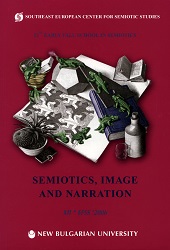
We kindly inform you that, as long as the subject affiliation of our 300.000+ articles is in progress, you might get unsufficient or no results on your third level or second level search. In this case, please broaden your search criteria.

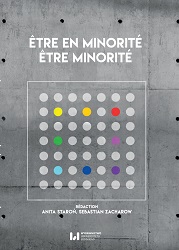
The Literature of Jewish writers from North Africa in postcolonial France is a particularly sui¬table example for the analysis of what being in a minority and / or be a minority means. Indeed, the status of the Jews from Maghreb can be viewed in a twofold manner – as a minority from the point of view of legal and customary status and from the demographic point of view. The “minority” or “minor” refers first to the minority position of producers from this population in the global social space. It can give their literature a political-cultural dimension, as explained in the definition given to “minor literature” by Gilles Deleuze and Félix Guattari. The other aspect of the “minor” or “minority” character – close to the definition of Jacques Dubois – ori¬ginates from the fact that this population of authors consists not only of recognized writers in the literary field but also marginal authors. The “minor” term, in this second case, refers neither to the subversive capacity of the culturally dominated literary production nor to the use of a majority language by a minority. The objective is therefore to verify the relevance of the use of this term referred to a literary production of a minority group inscribed in and in interaction with a national and dominant literature.The Literature of Jewish writers from North Africa in postcolonial France is a particularly suitable example for the analysis of what being in a minority and / or be a minority means. Indeed, the status of the Jews from Maghreb can be viewed in a twofold manner – as a minority from the point of view of legal and customary status and from the demographic point of view. The “minority” or “minor” refers first to the minority position of producers from this population in the global social space. It can give their literature a political-cultural dimension, as explained in the definition given to “minor literature” by Gilles Deleuze and Félix Guattari. The other aspect of the “minor” or “minority” character – close to the definition of Jacques Dubois – originates from the fact that this population of authors consists not only of recognized writers in the literary field but also marginal authors. The “minor” term, in this second case, refers neither to the subversive capacity of the culturally dominated literary production nor to the use of a majority language by a minority. The objective is therefore to verify the relevance of the use of this term referred to a literary production of a minority group inscribed in and in interaction with a national and dominant literature.
More...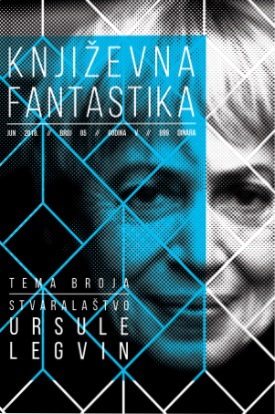
Ovaj esej ima za cilj, pored pružanja pregleda razvoja žanra fantastike u francuskoj (i frankofonoj) književnosti prevashodno 20. i 21. veka (uz isticanje ranijih ključnih predstavnika), i da postavi par načelnih pitanja1. Naime, izučavaocima fantastike ne promiče činjenica da je, u slučaju francuske moderne književnosti (od Prosvetiteljstva naovamo), za razliku od srednjovekovne i renesansne, spoljni podsticaj često bio potreban za slobodan i nesputan razvoj ovog žanra. Taj podsticaj ne samo da je bitan, nego je ključan, čak neminovan (ima li se u vidu nasleđe klasicizma i prosvećenosti, kasnijeg pozitivizma kao osnovnih odlika te literature – bar tako shvaćene u očima pisaca i kritike glavnog toka): reč je o činjenici koja se, takoreći ciklički, organski, ponavlja, i obuhvata čak tri stoleća književnosti; od uticaja gotskog romana na Kazota, Florijana, Sada (i druge, predrevolucionarne pisce), preko uticaja Hofmana na romantičare i Poa na Bodlera (te, njegovim posredstvom, na školu dekadenata s kraja devetnaestog veka (Fin de siècle), kao i na celokupnu belgijsku književnu scenu), sve do uticaja Lavkrafta na pisce kako žanrovske tako i književnosti glavnog toka od poratnog razdoblja 20. veka do danas. Pa ipak, teško se može reći da su, kada se velika pera francuske književnosti, u jednom širokom luku, nabroje, pisci kao što su Ritbef, Vijon, Rable, Dobinje, Molijer, Pero, Sad, Balzak, Nerval, Gotje, Bodler, Mopasan, Uisman, Roni Ene, Švob, Makorlan, Mandijarg, Eme, Grak, Turnije, da se zadržimo samo na klasicima (neretko i prevratnicima), teš- ko se za njih može reći da su nosioci usko shvaćenog „Racionalističkog duha“ – duha lišenog fantastičke svesti i potrebe za fantastikom. To je tim čudnije što je začetnik izučavanja fantastične priče, prvi sakupljač narodnih umotvorina tog vida, njihove redakcije i štampanja Šarl Pero, čiji je uticaj na Nemačku školu i Braću Grim (a preko njih na sve vodeće evropske književnike iz te oblasti, uključujući i Vuka Karadžića kod nas), neosporan. Pero je, u sporu Starih i Modernih, stao na stranu drugih upravo ističući fantastičnu priču (u osnovi, kod njega, bajku) kao delo modernih (kako po motivu, tako i po formi).
More...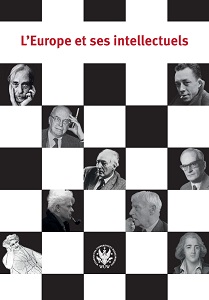
To celebrate the 200th anniversary of the foundation of the University of Warsaw, a research group from the Faculty of Modern Languages organized at the end of May and the beginning of June 2016 an international conference entitled “Europe and its Intellectuals”. The event was planned as part of the international programme “European Culture – European Identity” which is co-organized by the University of Warsaw with, among others: Universtité de la Sorbonne-Paris IV, Universität Bonn, Universita de Firenze, University of St Andrews, Université de Fribourg, Universita degli Studi Firenze, Universidad de Salamanca, Bulgarian Academy of Sciences, Université de Toulouse Le Mirail. The aim of the project was to show to what extent the idea of Europe was and is being shaped by the intellectual elites, and to emphasise the role played in this process by important institutions such as universities, libraries, museums, archives, publishing houses, and other centres of intellectual life. Such a framework allowed the participants to reflect in their presentations and discussions on more detailed issues: Panel I – “Engagement in the interest of Europe and its shape”, Panel II – “Europe in comparative perspective”, Panel III – “Remarkable individuals of the intellectual Europe”, Panel IV – “European incarnations”. At the invitation of the rector of the University of Warsaw, Marcin Pałys, the conference was attended by the rectors of the Paris-Sorbonne University and the University of Bonn. The papers of twenty-three scholars have been edited and published by the University of Warsaw Press in a volume of conference proceedings in printed and electronic versions.
More...
To celebrate the 200th anniversary of the foundation of the University of Warsaw, a research group from the Faculty of Modern Languages organized at the end of May and the beginning of June 2016 an international conference entitled “Europe and its Intellectuals”. The event was planned as part of the international programme “European Culture – European Identity” which is co-organized by the University of Warsaw with, among others: Universtité de la Sorbonne-Paris IV, Universität Bonn, Universita de Firenze, University of St Andrews, Université de Fribourg, Universita degli Studi Firenze, Universidad de Salamanca, Bulgarian Academy of Sciences, Université de Toulouse Le Mirail. The aim of the project was to show to what extent the idea of Europe was and is being shaped by the intellectual elites, and to emphasise the role played in this process by important institutions such as universities, libraries, museums, archives, publishing houses, and other centres of intellectual life. Such a framework allowed the participants to reflect in their presentations and discussions on more detailed issues: Panel I – “Engagement in the interest of Europe and its shape”, Panel II – “Europe in comparative perspective”, Panel III – “Remarkable individuals of the intellectual Europe”, Panel IV – “European incarnations”. At the invitation of the rector of the University of Warsaw, Marcin Pałys, the conference was attended by the rectors of the Paris-Sorbonne University and the University of Bonn. The papers of twenty-three scholars have been edited and published by the University of Warsaw Press in a volume of conference proceedings in printed and electronic versions.
More...
To celebrate the 200th anniversary of the foundation of the University of Warsaw, a research group from the Faculty of Modern Languages organized at the end of May and the beginning of June 2016 an international conference entitled “Europe and its Intellectuals”. The event was planned as part of the international programme “European Culture – European Identity” which is co-organized by the University of Warsaw with, among others: Universtité de la Sorbonne-Paris IV, Universität Bonn, Universita de Firenze, University of St Andrews, Université de Fribourg, Universita degli Studi Firenze, Universidad de Salamanca, Bulgarian Academy of Sciences, Université de Toulouse Le Mirail. The aim of the project was to show to what extent the idea of Europe was and is being shaped by the intellectual elites, and to emphasise the role played in this process by important institutions such as universities, libraries, museums, archives, publishing houses, and other centres of intellectual life. Such a framework allowed the participants to reflect in their presentations and discussions on more detailed issues: Panel I – “Engagement in the interest of Europe and its shape”, Panel II – “Europe in comparative perspective”, Panel III – “Remarkable individuals of the intellectual Europe”, Panel IV – “European incarnations”. At the invitation of the rector of the University of Warsaw, Marcin Pałys, the conference was attended by the rectors of the Paris-Sorbonne University and the University of Bonn. The papers of twenty-three scholars have been edited and published by the University of Warsaw Press in a volume of conference proceedings in printed and electronic versions.
More...
To celebrate the 200th anniversary of the foundation of the University of Warsaw, a research group from the Faculty of Modern Languages organized at the end of May and the beginning of June 2016 an international conference entitled “Europe and its Intellectuals”. The event was planned as part of the international programme “European Culture – European Identity” which is co-organized by the University of Warsaw with, among others: Universtité de la Sorbonne-Paris IV, Universität Bonn, Universita de Firenze, University of St Andrews, Université de Fribourg, Universita degli Studi Firenze, Universidad de Salamanca, Bulgarian Academy of Sciences, Université de Toulouse Le Mirail. The aim of the project was to show to what extent the idea of Europe was and is being shaped by the intellectual elites, and to emphasise the role played in this process by important institutions such as universities, libraries, museums, archives, publishing houses, and other centres of intellectual life. Such a framework allowed the participants to reflect in their presentations and discussions on more detailed issues: Panel I – “Engagement in the interest of Europe and its shape”, Panel II – “Europe in comparative perspective”, Panel III – “Remarkable individuals of the intellectual Europe”, Panel IV – “European incarnations”. At the invitation of the rector of the University of Warsaw, Marcin Pałys, the conference was attended by the rectors of the Paris-Sorbonne University and the University of Bonn. The papers of twenty-three scholars have been edited and published by the University of Warsaw Press in a volume of conference proceedings in printed and electronic versions.
More...
To celebrate the 200th anniversary of the foundation of the University of Warsaw, a research group from the Faculty of Modern Languages organized at the end of May and the beginning of June 2016 an international conference entitled “Europe and its Intellectuals”. The event was planned as part of the international programme “European Culture – European Identity” which is co-organized by the University of Warsaw with, among others: Universtité de la Sorbonne-Paris IV, Universität Bonn, Universita de Firenze, University of St Andrews, Université de Fribourg, Universita degli Studi Firenze, Universidad de Salamanca, Bulgarian Academy of Sciences, Université de Toulouse Le Mirail. The aim of the project was to show to what extent the idea of Europe was and is being shaped by the intellectual elites, and to emphasise the role played in this process by important institutions such as universities, libraries, museums, archives, publishing houses, and other centres of intellectual life. Such a framework allowed the participants to reflect in their presentations and discussions on more detailed issues: Panel I – “Engagement in the interest of Europe and its shape”, Panel II – “Europe in comparative perspective”, Panel III – “Remarkable individuals of the intellectual Europe”, Panel IV – “European incarnations”. At the invitation of the rector of the University of Warsaw, Marcin Pałys, the conference was attended by the rectors of the Paris-Sorbonne University and the University of Bonn. The papers of twenty-three scholars have been edited and published by the University of Warsaw Press in a volume of conference proceedings in printed and electronic versions.
More...
To celebrate the 200th anniversary of the foundation of the University of Warsaw, a research group from the Faculty of Modern Languages organized at the end of May and the beginning of June 2016 an international conference entitled “Europe and its Intellectuals”. The event was planned as part of the international programme “European Culture – European Identity” which is co-organized by the University of Warsaw with, among others: Universtité de la Sorbonne-Paris IV, Universität Bonn, Universita de Firenze, University of St Andrews, Université de Fribourg, Universita degli Studi Firenze, Universidad de Salamanca, Bulgarian Academy of Sciences, Université de Toulouse Le Mirail. The aim of the project was to show to what extent the idea of Europe was and is being shaped by the intellectual elites, and to emphasise the role played in this process by important institutions such as universities, libraries, museums, archives, publishing houses, and other centres of intellectual life. Such a framework allowed the participants to reflect in their presentations and discussions on more detailed issues: Panel I – “Engagement in the interest of Europe and its shape”, Panel II – “Europe in comparative perspective”, Panel III – “Remarkable individuals of the intellectual Europe”, Panel IV – “European incarnations”. At the invitation of the rector of the University of Warsaw, Marcin Pałys, the conference was attended by the rectors of the Paris-Sorbonne University and the University of Bonn. The papers of twenty-three scholars have been edited and published by the University of Warsaw Press in a volume of conference proceedings in printed and electronic versions.
More...
To celebrate the 200th anniversary of the foundation of the University of Warsaw, a research group from the Faculty of Modern Languages organized at the end of May and the beginning of June 2016 an international conference entitled “Europe and its Intellectuals”. The event was planned as part of the international programme “European Culture – European Identity” which is co-organized by the University of Warsaw with, among others: Universtité de la Sorbonne-Paris IV, Universität Bonn, Universita de Firenze, University of St Andrews, Université de Fribourg, Universita degli Studi Firenze, Universidad de Salamanca, Bulgarian Academy of Sciences, Université de Toulouse Le Mirail. The aim of the project was to show to what extent the idea of Europe was and is being shaped by the intellectual elites, and to emphasise the role played in this process by important institutions such as universities, libraries, museums, archives, publishing houses, and other centres of intellectual life. Such a framework allowed the participants to reflect in their presentations and discussions on more detailed issues: Panel I – “Engagement in the interest of Europe and its shape”, Panel II – “Europe in comparative perspective”, Panel III – “Remarkable individuals of the intellectual Europe”, Panel IV – “European incarnations”. At the invitation of the rector of the University of Warsaw, Marcin Pałys, the conference was attended by the rectors of the Paris-Sorbonne University and the University of Bonn. The papers of twenty-three scholars have been edited and published by the University of Warsaw Press in a volume of conference proceedings in printed and electronic versions.
More...
To celebrate the 200th anniversary of the foundation of the University of Warsaw, a research group from the Faculty of Modern Languages organized at the end of May and the beginning of June 2016 an international conference entitled “Europe and its Intellectuals”. The event was planned as part of the international programme “European Culture – European Identity” which is co-organized by the University of Warsaw with, among others: Universtité de la Sorbonne-Paris IV, Universität Bonn, Universita de Firenze, University of St Andrews, Université de Fribourg, Universita degli Studi Firenze, Universidad de Salamanca, Bulgarian Academy of Sciences, Université de Toulouse Le Mirail. The aim of the project was to show to what extent the idea of Europe was and is being shaped by the intellectual elites, and to emphasise the role played in this process by important institutions such as universities, libraries, museums, archives, publishing houses, and other centres of intellectual life. Such a framework allowed the participants to reflect in their presentations and discussions on more detailed issues: Panel I – “Engagement in the interest of Europe and its shape”, Panel II – “Europe in comparative perspective”, Panel III – “Remarkable individuals of the intellectual Europe”, Panel IV – “European incarnations”. At the invitation of the rector of the University of Warsaw, Marcin Pałys, the conference was attended by the rectors of the Paris-Sorbonne University and the University of Bonn. The papers of twenty-three scholars have been edited and published by the University of Warsaw Press in a volume of conference proceedings in printed and electronic versions.
More...
To celebrate the 200th anniversary of the foundation of the University of Warsaw, a research group from the Faculty of Modern Languages organized at the end of May and the beginning of June 2016 an international conference entitled “Europe and its Intellectuals”. The event was planned as part of the international programme “European Culture – European Identity” which is co-organized by the University of Warsaw with, among others: Universtité de la Sorbonne-Paris IV, Universität Bonn, Universita de Firenze, University of St Andrews, Université de Fribourg, Universita degli Studi Firenze, Universidad de Salamanca, Bulgarian Academy of Sciences, Université de Toulouse Le Mirail. The aim of the project was to show to what extent the idea of Europe was and is being shaped by the intellectual elites, and to emphasise the role played in this process by important institutions such as universities, libraries, museums, archives, publishing houses, and other centres of intellectual life. Such a framework allowed the participants to reflect in their presentations and discussions on more detailed issues: Panel I – “Engagement in the interest of Europe and its shape”, Panel II – “Europe in comparative perspective”, Panel III – “Remarkable individuals of the intellectual Europe”, Panel IV – “European incarnations”. At the invitation of the rector of the University of Warsaw, Marcin Pałys, the conference was attended by the rectors of the Paris-Sorbonne University and the University of Bonn. The papers of twenty-three scholars have been edited and published by the University of Warsaw Press in a volume of conference proceedings in printed and electronic versions.
More...
To celebrate the 200th anniversary of the foundation of the University of Warsaw, a research group from the Faculty of Modern Languages organized at the end of May and the beginning of June 2016 an international conference entitled “Europe and its Intellectuals”. The event was planned as part of the international programme “European Culture – European Identity” which is co-organized by the University of Warsaw with, among others: Universtité de la Sorbonne-Paris IV, Universität Bonn, Universita de Firenze, University of St Andrews, Université de Fribourg, Universita degli Studi Firenze, Universidad de Salamanca, Bulgarian Academy of Sciences, Université de Toulouse Le Mirail. The aim of the project was to show to what extent the idea of Europe was and is being shaped by the intellectual elites, and to emphasise the role played in this process by important institutions such as universities, libraries, museums, archives, publishing houses, and other centres of intellectual life. Such a framework allowed the participants to reflect in their presentations and discussions on more detailed issues: Panel I – “Engagement in the interest of Europe and its shape”, Panel II – “Europe in comparative perspective”, Panel III – “Remarkable individuals of the intellectual Europe”, Panel IV – “European incarnations”. At the invitation of the rector of the University of Warsaw, Marcin Pałys, the conference was attended by the rectors of the Paris-Sorbonne University and the University of Bonn. The papers of twenty-three scholars have been edited and published by the University of Warsaw Press in a volume of conference proceedings in printed and electronic versions.
More...
To celebrate the 200th anniversary of the foundation of the University of Warsaw, a research group from the Faculty of Modern Languages organized at the end of May and the beginning of June 2016 an international conference entitled “Europe and its Intellectuals”. The event was planned as part of the international programme “European Culture – European Identity” which is co-organized by the University of Warsaw with, among others: Universtité de la Sorbonne-Paris IV, Universität Bonn, Universita de Firenze, University of St Andrews, Université de Fribourg, Universita degli Studi Firenze, Universidad de Salamanca, Bulgarian Academy of Sciences, Université de Toulouse Le Mirail. The aim of the project was to show to what extent the idea of Europe was and is being shaped by the intellectual elites, and to emphasise the role played in this process by important institutions such as universities, libraries, museums, archives, publishing houses, and other centres of intellectual life. Such a framework allowed the participants to reflect in their presentations and discussions on more detailed issues: Panel I – “Engagement in the interest of Europe and its shape”, Panel II – “Europe in comparative perspective”, Panel III – “Remarkable individuals of the intellectual Europe”, Panel IV – “European incarnations”. At the invitation of the rector of the University of Warsaw, Marcin Pałys, the conference was attended by the rectors of the Paris-Sorbonne University and the University of Bonn. The papers of twenty-three scholars have been edited and published by the University of Warsaw Press in a volume of conference proceedings in printed and electronic versions.
More...
To celebrate the 200th anniversary of the foundation of the University of Warsaw, a research group from the Faculty of Modern Languages organized at the end of May and the beginning of June 2016 an international conference entitled “Europe and its Intellectuals”. The event was planned as part of the international programme “European Culture – European Identity” which is co-organized by the University of Warsaw with, among others: Universtité de la Sorbonne-Paris IV, Universität Bonn, Universita de Firenze, University of St Andrews, Université de Fribourg, Universita degli Studi Firenze, Universidad de Salamanca, Bulgarian Academy of Sciences, Université de Toulouse Le Mirail. The aim of the project was to show to what extent the idea of Europe was and is being shaped by the intellectual elites, and to emphasise the role played in this process by important institutions such as universities, libraries, museums, archives, publishing houses, and other centres of intellectual life. Such a framework allowed the participants to reflect in their presentations and discussions on more detailed issues: Panel I – “Engagement in the interest of Europe and its shape”, Panel II – “Europe in comparative perspective”, Panel III – “Remarkable individuals of the intellectual Europe”, Panel IV – “European incarnations”. At the invitation of the rector of the University of Warsaw, Marcin Pałys, the conference was attended by the rectors of the Paris-Sorbonne University and the University of Bonn. The papers of twenty-three scholars have been edited and published by the University of Warsaw Press in a volume of conference proceedings in printed and electronic versions.
More...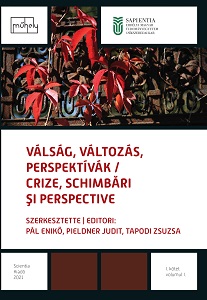
One of the foremost challenges of writing children’s literature is dealing with trauma such as wars, crimes, and violence. The article aims to highlight how comic books’ authors manage to fulfill the responsibility of memory towards young readers, to convey the memory of the Holocaust in an adapted way. In this way, we propose three French comic books for analysis – The Hidden Child by Marc Lizano, Loïc Dauvillier, and Greg Salsedo; The Wild Flight by Laurent Galandon, Arno Monin, and Hamo; Irena by Marc Lizano, Loïc Dauvillier, and Greg Salsedo. Focusing on the image of the child captured in these works, we will take in consideration how fiction presents the Holocaust experience and how it affects the characters’ development. We will also observe that, as a reader, the child is protected: the authors are concerned with its sensitivity and immaturity. They use adapted techniques designed to facilitate the meeting between the child and history.
More...
In this paper, I examine the significance and meaning of rust motifs in the so-called “critical fiction” segment of contemporary French literature, and more specifically in the novels of François Bon. Without following through the appearances of rust in literary history exhaustively, some previous instances are briefly mentioned, since rust is one of the most frequently used images of the fragility and transience of the man-made world. In extreme contemporary literature, the poetics of rust expresses the nostalgia for a past industrial society in strange configurations, without remaining within the narrow confines of realistic presentation. Despite its apparent stasis, rust always presupposes an earlier pre-rust time horizon, that of the brand new state of the man-made object, machinery, or bridge. Recently, François Bon published a study of László Moholy-Nagy’s photo series of the transporter bridge of the Old Port of Marseille, blown up in 1944. The pedestal of the transporter bridge, as a rusting memento, from time to time awakens the desire in the French to reconstruct this peak of engineering and industrial achievement.
More...
Étienne-Léon de Lamothe-Langon (1786-1864) is, without a doubt, a true giant of the popular literature of the first half of the 19th century. As one of the most prolific authors of his time, he knew how to adapt to the literary tastes of the public from the end of the Napoleonic era until the fall of the July Monarchy. Firstly, the present study outlines the biography of this now largely forgotten writer, a key factor for understanding his literary career, and it gives an overview of his work. At the beginning of the first chapter, particular emphasis is put on the diary of Lamothe-Langon dating from 1809. Later in the chapter, the reception of Lamothe-Langon’s novels in the press of time and his literary posterity are examined. The following chapter focuses on the analysis of the paratext, an essential factor shedding light on many otherwise hidden aspects of the chosen corpus consisting of the eleven novels of Lamothe-Langon belonging to the Gothic genre. The third part of the book is devoted to the dark but fascinating universe of Lamothe-Langon’s novelistic world characterized by a highly heterogeneous assortment of characters in a spatio-temporal framework defined by a whole range of diverse phenomena proper to the world of Gothic fiction. Finally, an important aspect of the novels belonging to the corpus, namely their hybridity, both formal and generic, is thoroughly examined taking into consideration the intrinsic correlation existing between the analyzed novels and the dominant genres of their period, such as the Gothic fiction, the fantastique, the sentimental novel and the historical novel.
More...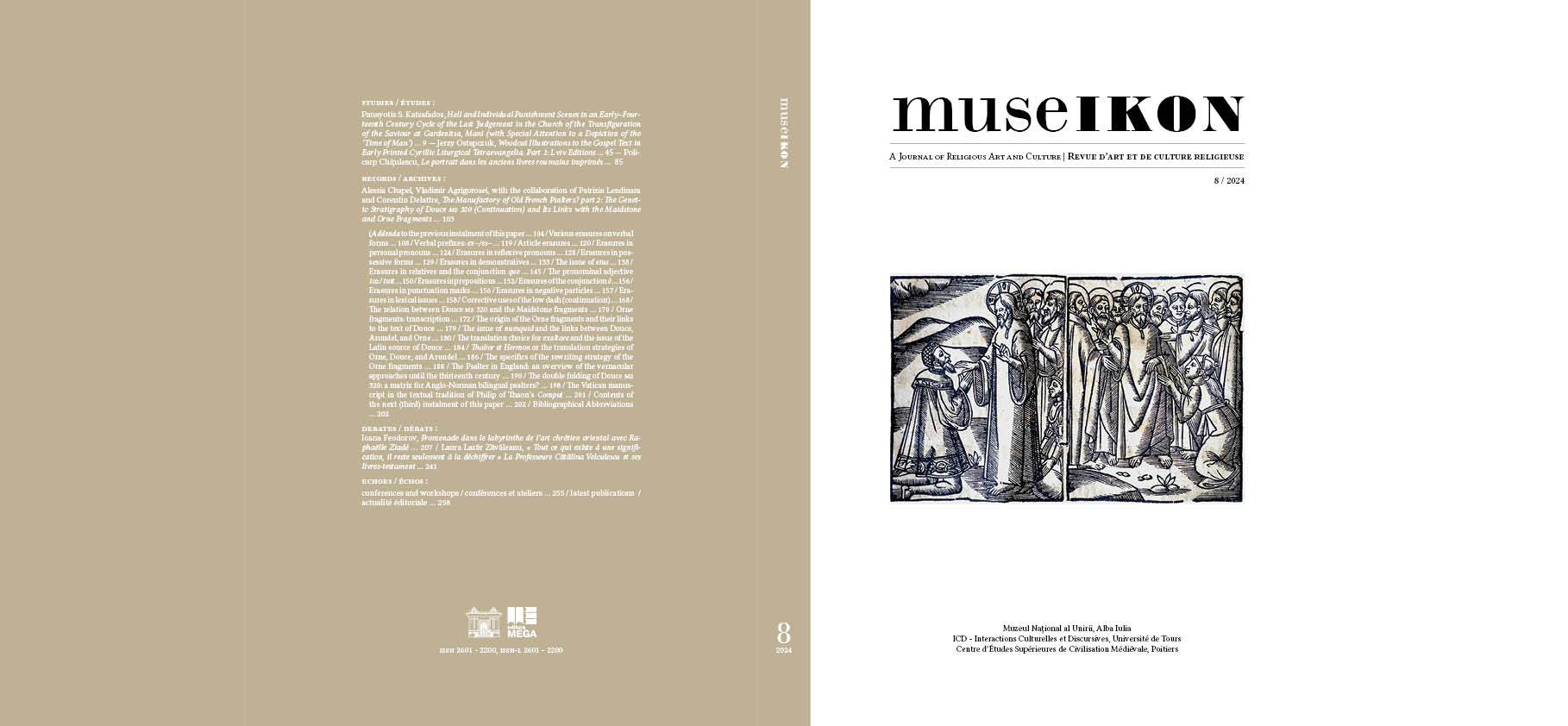
Le présent article s’inscrit dans la continuité de celui qui a été publié en 2023 dans la même revue (The Manufactory of Old French Psalters: Part 1…). Ce deuxième volet comprend d’abord une section de addenda qui complètent certaines parties du précèdent article. S’ajoutent ensuite les érasures dans diverses formes verbales, suivies par un recensement des corrections liées aux préfixes ex– et es–. D’autres séries d’érasures concernent différentes parties du discours: articles définis; pronoms personnels; pronoms réflexifs; formes possessives; démonstratifs; avec une étude de cas sur les choix de traduction du génitif eius, dont plusieurs documentent l’existence d’un antigraphe. Il s’agit souvent d’une hésitation entre les formes faibles et fortes. Des sections com-plémentaires sont consacrées aux érasures des pronoms relatifs et de la conjonction que; à l’adjectif pronominal toz / tuit; aux prépositions; à la conjonction é; aux signes de ponctuation; et aux particules négatives. L’ana-lyse des érasures du manuscrit d’Oxford, Bibliothèque bodléienne, Douce 320 se termine par un examen détaillé des corrections liées à différents phénomènes lexicaux. L’article porte ensuite sur les rapports entre le manuscrit Douce et les fragments de Maidstone, dont la transcription a été publiée dans le premier volet. Suivent une transcrip-tion des fragments de l’Orne (Paris, Archives Nationales, dossier AB xix 1734) et une étude sur l’origine de ces derniers et sur leurs liens avec le texte de Douce. Les choix de traduction pour le latin numquid documentent les liens entre Douce, Arundel (Londres, Bibliothèque britannique, Arundel 230) et Orne. Les choix de traduction du latin exaltare permettent en partie de restituer le texte latin de la source de Douce. Les différentes stratégies de traduction d’Orne, de Douce et d’Arundel semblent être des réécritures d’antigraphes similaires. Toutes ces ana-lyses montrent que Douce, Arundel, Orne et Maidstone proviennent de deux ou plusieurs gloses vernaculaires apparentées. L’article propose ensuite une perspective globale sur les approches vernaculaires de la traduction des psaumes en Angleterre jusqu’au xiiie siècle, qui documente l’interaction des langues vernaculaires anglaises et françaises avec les textes (et l’exégèse) latins. Il se termine par une discussion (appuyée sur deux exemples du xiie siècle) concernant le double pliage du Douce, lié sans doute à sa circulation et à son emploi dans la réalisation des psautiers bilingues à deux colonnes. Le troisième volet du présent article est prévu pour 2025. Il comprendra la transcription du texte de Douce (avec l’accentuation originale et l’emplacement des érasures), ainsi que plusieurs études complémentaires.
More...